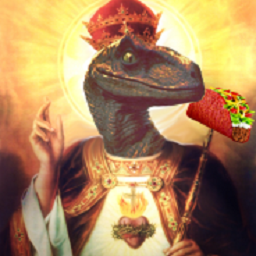

I would say that the Fediverse, Lemmy, Etc. are diametrically opposed to blockchain in the way each approaches decentralization.
The blockchain/crypto, tries to “solve” decentralization by creating a trustless database that nobody can own. It assumes that the technology is perfect software, executing the same code for everyone, equally, without outside interference. It requires all users to be equal, that any changes be made in the interest of the collective.
What actually happens, especially as you scale up, is that early investors are disproportionately valued, while wealthy investors can dump tons of money into mining. These stakeholders then expect a profit in return, and the loop of enshittification begins. The stakeholders can apply pressure to fork or update the blockchain in ways that favor them, and normal people have no recourse to do anything.
Blockchain is also, by design, incredibly inefficient. Bitcoin, which caps at 7 transactions per second, cannot scale to any meaningful, and require third-party exchanges to perform transactions OFF the blockchain taking a cut of the cost in the process. The various proof-of-stake can achieve reasonable TPS rates, but also require a third-party to provide collateral, which again gives them power over the platform. And sure, you could make your own small cryptocurrency, but to federatate your coin to other coins you still need a third-party exchange!
The Fediverse, by contrast, is based on the idea of Free and Open-Source Software (FOSS). It thinks that private, for-profit entities shouldn’t control public resources, and that technology is best when it is transparent and accessible to everyone. Here, decentralization is a tool. While ActivityPub (the technology behind the Fediverse) is decentralized in implementation, the standard is maintained by a central governing body (the W3C, an international non-profit consortium).
Another difference is that ActivityPub isn’t “trustless” like blockchain. On a Fediverse social media platform, like Lemmy, each server is an independent central authority, a unique database of users, posts, and interactions. Rules and decisions are governed by their administrators, and the moderators they appoint. It only achieves decentralization by allowing these servers to federate by (and this is key) trusting other servers. Trust is the default, which is antithetical to the blockchain. Admins can then revoke trust for malicious actors. You can see this happening now on Mastodon with the news about Meta joining the Fediverse, the Fediverse Pact, and the ripple affects on mstdn.social and mastodon.art.
Blockchain ultimately fails as a technology because the core assumption it makes is flawed. A truly trustless system cannot exist. You trust the programmers who make a blockchain or ActivityPub that their source code does what it says it does, and they haven’t secretly modified anything. You have to trust the third-parties that make crypto exchanges and Lemmy instances with your personal data and to operate as promised. You have to trust the other users you send money to or reply to in the comments. By viewing “decentralization” as the solution and “trust” as the problem, blockchain dooms itself to never accomplish anything of value.

On every website I’ve ever ever been on, opting in for NSFW means opting in for porn. If you don’t want porn, disable NSFW, and block any communities that don’t use proper NSFW tags. If you want to sometimes view NSFW/porn, but not always, make an alt account, preferably on a NSFW-focused instance.
I learned this lesson on Mastodon, but all means ALL. It is an uncontrolled firehouse of posts without any algorithm to filter it. By design, if a single BeeHaw user subscribes to a porn community, then the entire instance shows up in everyone’s all feed, unless BeeHaw defederates.
You could always make a feature request with the Lemmy devs, but they are swamped with all the bug reports and feature requests. There is no way to tell when or if the feature you’re asking will be implemented, and when BeeHaw will update to it. So to answer your question, no there isn’t. You’ll need to disable NSFW.